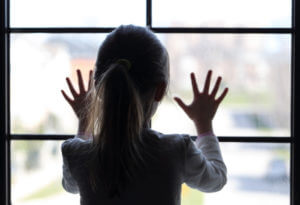
Over the years there have been endless studies on the effects of divorce on parents and children. Some of the results are controversial. Others seem to be universally accepted as relevant and real. Here are a few of my perceptions from studies on children who experience divorce that I believe all of us, as parents, should take to heart.
Use your post-divorce time ahead wisely
- Not surprisingly, the first two years of divorce are the most difficult. In some cases it takes an average of three to five years to really “work through” and resolve many of the issues and emotions that come to the surface. For some, the effects of divorce last many additional years — or even a lifetime — if not dealt
with appropriately. Taking steps toward acceptance, responsibility and preparing for happier times ahead give your life new meaning. It can also dramatically impact the negative effects of divorce on all members of the family. That mindset is part of creating a child-centered divorce. And that will help everyone to proactively move through this time rather than merely letting “time heal all wounds.”
Understand the divorce from your child’s perspective
- Preschoolers tend to be more frightened and anxious, but seem to adjust better than older children in the long run. Their biggest fear is of abandonment. Stressing security and a continuation of family routines is very helpful for them. Older children understand more, but do not have adequate coping skills and therefore seem to have more long-term problems. This is often because they remember life before the divorce. They may experience a greater change of life
patterns and dwell more on comparisons between the past and present. Stressing the love both parents have for your child — and that your love will continue forever is vitally important whenever possible.
Be the parental role model your children need to see
- Children who may have witnessed a troubled marriage and family life
may greatly benefit from observing their parents child-centered divorce. They can see both parents working out a reasonable and respectful post-divorce arrangement. This positive and mature behavior will affect a child’s adjustment more than any other factor. It also helps them relax and accept the divorce, knowing that things are working out and the future looks brighter ahead.
It is never too late to create a child-centered divorce, even if you started on the wrong track. Every step you take toward focusing on your children’s emotional, psychological and physical needs matters. The months and years post-divorce can be a step toward modeling for them how loving, compassionate, and caring parents respond to their children’s needs. I encourage you to make your relationship with your children’s other parent as respectful
and considerate as you can — for the sake of your children.
* * * *
Rosalind Sedacca, CDC is the founder of the Child-Centered Divorce Network, a Divorce & Co-Parenting Coach and author of the acclaimed e-book, How Do I Tell the Kids About the Divorce? A Create-a-Storybook Guide to Preparing Your Children — With Love! To get her advice, coaching services, expert interviews, ebooks, e-courses and other valuable resources on divorce and co-parenting, visit: http://www.
Please share this article on social media.
Copyright Rosalind Sedacca
5301 North Federal Highway




